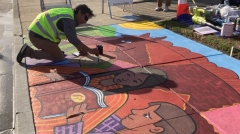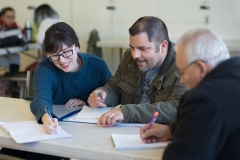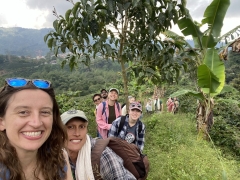Students Work at Intersection of Language and Mobility in Monterey through New Fellowship
| by Sierra Abukins
The inaugural fellows created a bilingual booklet to help the community engage - in both English and Spanish - with new sidewalk murals along routes to Salinas schools. The multi-year partnership with the Transportation Agency for Monterey County lets faculty and students put their skills to work on local community projects.



